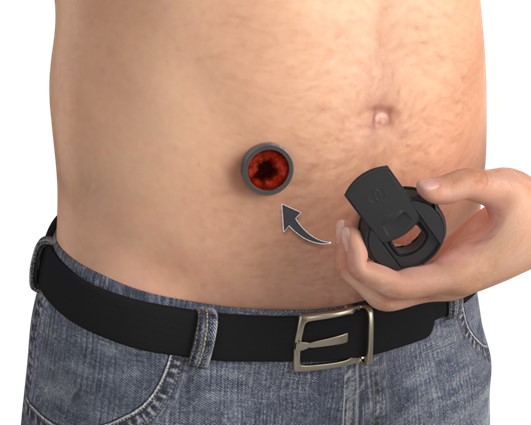A nurse is evaluating a client's acceptance of having a new ileostomy. Which of the following statements by the client indicates acceptance?
"I will attend a support group to help me handle difficulties when they occur."
"I have my partner empty the bag for me, so I don't have to look at it."
"I look forward to having normal bowel movements again."
"I wish my sexual relationship with my partner was like it was before."
The Correct Answer is A
The correct answer is choice A, "I will attend a support group to help me handle difficulties when they occur." This statement indicates that the client is accepting the situation and taking proactive steps to manage any difficulties that may arise. Choice B is incorrect because relying on someone else to empty the bag suggests possible denial or avoidance of the situation. Choice C is incorrect because normal bowel movements after an ileostomy may not happen. Choice D is incorrect because it is not related to acceptance of the ileostomy. Choice B is not correct because it shows possible denial or avoidance of the situation. Choice C is not correct because normal bowel movements may not occur. Choice D is not correct because it is not related to acceptance of the ileostomy.

Nursing Test Bank
Naxlex Comprehensive Predictor Exams
Related Questions
Correct Answer is A
Explanation
Ringing in ears. Furosemide is a loop diuretic, which can cause ototoxicity as an adverse effect, resulting in ringing in the ears, hearing loss, or vertigo. The nurse should instruct the client to monitor for these adverse effects and report them immediately if they occur.
An explanation for incorrect choices:
B. Metallic taste is a common adverse effect of metronidazole or clarithromycin, but not furosemide.
C. Rhinitis is associated with intranasal or occasionally oral corticosteroid use.
D. Agitation is a side effect for stimulants, sedatives, or antidepressants.
Correct Answer is A
No explanation
Whether you are a student looking to ace your exams or a practicing nurse seeking to enhance your expertise , our nursing education contents will empower you with the confidence and competence to make a difference in the lives of patients and become a respected leader in the healthcare field.
Visit Naxlex, invest in your future and unlock endless possibilities with our unparalleled nursing education contents today
Report Wrong Answer on the Current Question
Do you disagree with the answer? If yes, what is your expected answer? Explain.
Kindly be descriptive with the issue you are facing.
